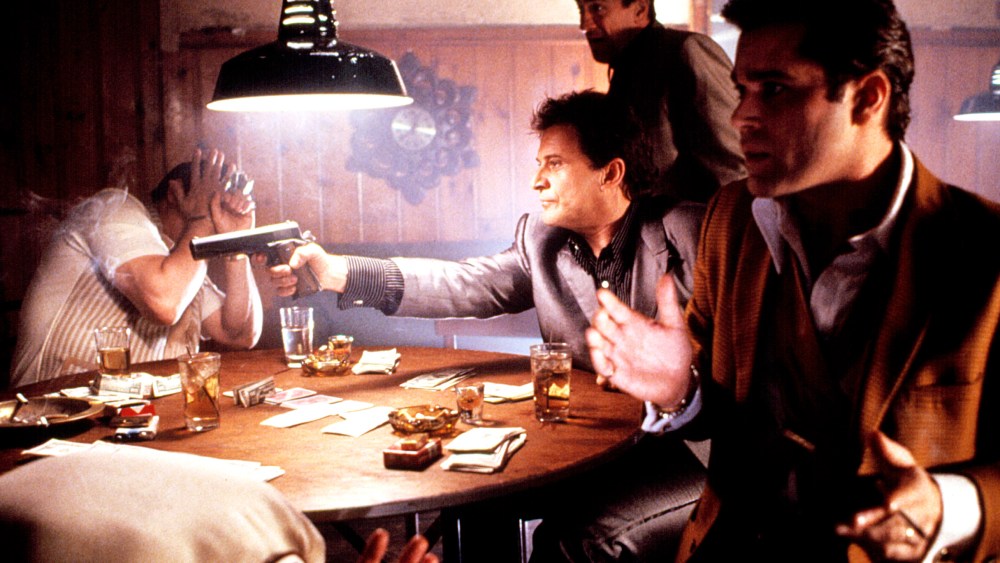
Why Joe Pesci Wasn’t Interviewed for Apple TV’s ‘Mr. Scorsese’
For most people, it was an easy ask. After all, Martin Scorsese is a living legend, a director who has produced masterpiece after masterpiece in a career that has spanned decades. So collaborators like Robert De Niro, Jodie Foster, Leonardo DiCaprio and admirers like Spike Lee and Steven Spielberg were eager to be on camera talking about the cinematic genius for “Mr. Scorsese,” a five-part docuseries that recently debuted on Apple TV.
However, one interview eluded Rebecca Miller, the film’s director.
“The only person who said ‘no’ was Joe Pesci,” Miller says. “He really didn’t want to be interviewed for this.”
It’s surprising given that Pesci won an Oscar playing a homicidal gangster in Scorsese’s “Goodfellas” and delivered similar hair-trigger turns in the director’s “Raging Bull,” “Casino” and “The Irishman.” But in the series, Scorsese reveals that Pesci was able to convincingly portray hardened killers because he grew up in Newark, N.J., surrounded by the criminal underworld.
“Marty explains it a little bit in the documentary,” Miller says. “He talks about how Joe just doesn’t want to talk about the experiences that made him so perfect for this kind of role.”
In fact, the scene in “Goodfellas” where Pesci’s character menacingly grills Henry Hill (Ray Liotta) about his off-handed comment that he’s funny emerged from an improvisation that was based on something the actor witnessed.
“Joe was marked far worse than Marty was by those people,” Miller says. “I don’t think he wants to go over all that.”
“Mr. Scorsese” is celebratory, but it doesn’t shy away from the darker periods of the filmmaker’s life and psyche, exploring his volatile temper, his struggles with drugs and near-death overdose, and his tangled romantic relationships (he’s been married five times). At 82, Scorsese wasn’t interested in any airbrushed tribute.
“He just decided in his heart to be frank,” Miller says.
Part of his openness comes from his decades-long marriage to Helen Scorsese, who Miller says has helped her husband find contentment. He also embraced meditation.
“He went through real transformations in his life,” Miller says. “You can see in the earlier interviews in the ’70s, there’s a torment going on there. But thanks to his relationship with his current wife, Helen, there’s this sense of having come home. This is a man who was pursued by the Furies for a long time and has somehow found peace.”
It also helped that Miller, a filmmaker whose credits include “Maggie’s Plan” and “She Came to Me,” has been in Scorsese’s orbit for some time. Her husband, Daniel Day-Lewis, starred in two Scorsese films, “The Age of Innocence” and “Gangs of New York.” The latter was an infamously chaotic production that went over budget and saw Scorsese clash with producer Harvey Weinstein. At one point, convinced that one of the screenwriters who was on set polishing the script was leaking information to Weinstein, Scorsese rushed into the office and flung his desk out the window. It turned out that he got confused and hurled the wrong person’s desk.
“I was on set a little, but I was a young mother at the time,” Miller says. “I heard things from Daniel’s perspective, but I learned a lot more about it by making this film.”
“Gangs of New York” was nominated for 11 Oscars, but is widely viewed as one of Scorsese’s less successful films. It’s wildly ambitious, attempting to take audiences back to the 19th century when New York was consumed by anti-immigrant prejudice and civic corruption, but Scorsese never quite cracked the script. Even today, he talks about it like it’s unfinished and could use another pass.
“‘Gangs’ took 30 years to incubate,” says Miller. “There’s the sense that he’s not done with it. And I totally relate to that. Pieces of art are never really finished, they’re just abandoned. At a certain point you have to let them go or else you’ll never leave.”
First Appeared on
Source link






